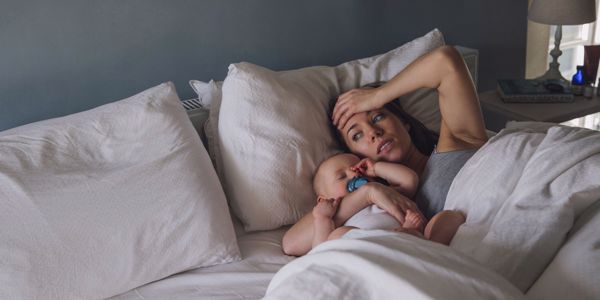We’ve all heard the saying that sleep deprivation is a form of torture, but do any of us ever think about why this is? Sleep deprivation is such a common phrase that I feel it loses its meaning sometimes and becomes a throw-away comment.
Unless you have really hit the dark depths of sleep deprivation, you can never really know how it truly feels and how desperate you become to try and change it. There are three main things that every living creature needs, air, food, and sleep. Without these three things, we cannot survive, so why do we keep putting sleep to the back of the queue?
Here Is a Short List of Some of the Things That Sleep Deprivation Can Lead To:
- Memory Issues
- Trouble Thinking and Concentrating
- Mood Changes
- Accidents
- Weakened Immunity
- High Blood Pressure
- Risk of Diabetes
- Weight Gain
- Low Sex Drive
- Risk of Heart Disease
- Poor Balance
From this list, you can start to see why sleep is so important. Some people seem to cope better than others with less sleep, but when you look at the list of risk factors, you realise that sleep deprivation is not a joke and needs to be taken seriously.
Short-term sleep deprivation when having a baby may not be too detrimental to your long-term health, however, if this doesn’t improve as your baby gets older and continues for years, you could start to put yourself at greater risk.
What Signs Can You Look For in Yourself or Others to Spot Sleep Deprivation?
- Frequent yawning
- Irritability
- Daytime Fatigue
- Excessive Sleepiness
- Lower sex drive
- Becoming more forgetful
- Struggling to get up to start the day.
- Finding it difficult to stay awake and alert while driving
- Regularly falling asleep during the evening on the sofa
Some of the above can be passed off as hormonal or due to becoming a parent, so they aren’t all instant causes for concern. Still, if you are noticing the frequency is increasing, or you are displaying multiple symptoms, then addressing the amount and/or quality of sleep may help to alleviate some of the symptoms.
What Happens if Sleep Deprivation Continues for a Long Time?
Sleep deprivation isn’t just being tired, it is so much more than that, and if it continues for a prolonged period could lead to:
- Hallucinations
- Depression
- Anxiety
- Suicidal Thoughts
- Impulsive Behaviour
- Paranoia
- Obesity
- Poor mental and/or physical health
These are not signs of a ‘tired’ person, but signs that someone could do with some help to start sleeping well again.
What Are Microsleeps?
Microsleep is where we fall asleep for a few seconds to a few minutes and don’t realise we have done it, (unless of course you happen to be driving at the time, then you really do notice).
It doesn’t just leave us vulnerable to car accidents but also, due to poor balance, we become more prone to injuring ourselves through trips and falls. Microsleep is something that is completely out of our control, and that is why this one scares a lot of people so much.
Sleep deprivation is a huge thing, and it is important to take it seriously. We all go through phases of little sleep, especially when we have a baby, but please look after yourself and your child and look for the signs. Ask for help where you can, and don’t let anyone tell you that you chose to be a parent and should be able to cope with the tiredness.
If something isn’t right, then it’s time to make a change. Speak to your family and friends, or reach out to your health visitor, your GP or even myself or someone else in the baby/parent support field. There is plenty of support and understanding out there, you just have to know where to look and ask for help when struggling with sleep deprivation.
Nicole Ratcliffe is a speaker at The Baby Show, find out more about their upcoming events here!





